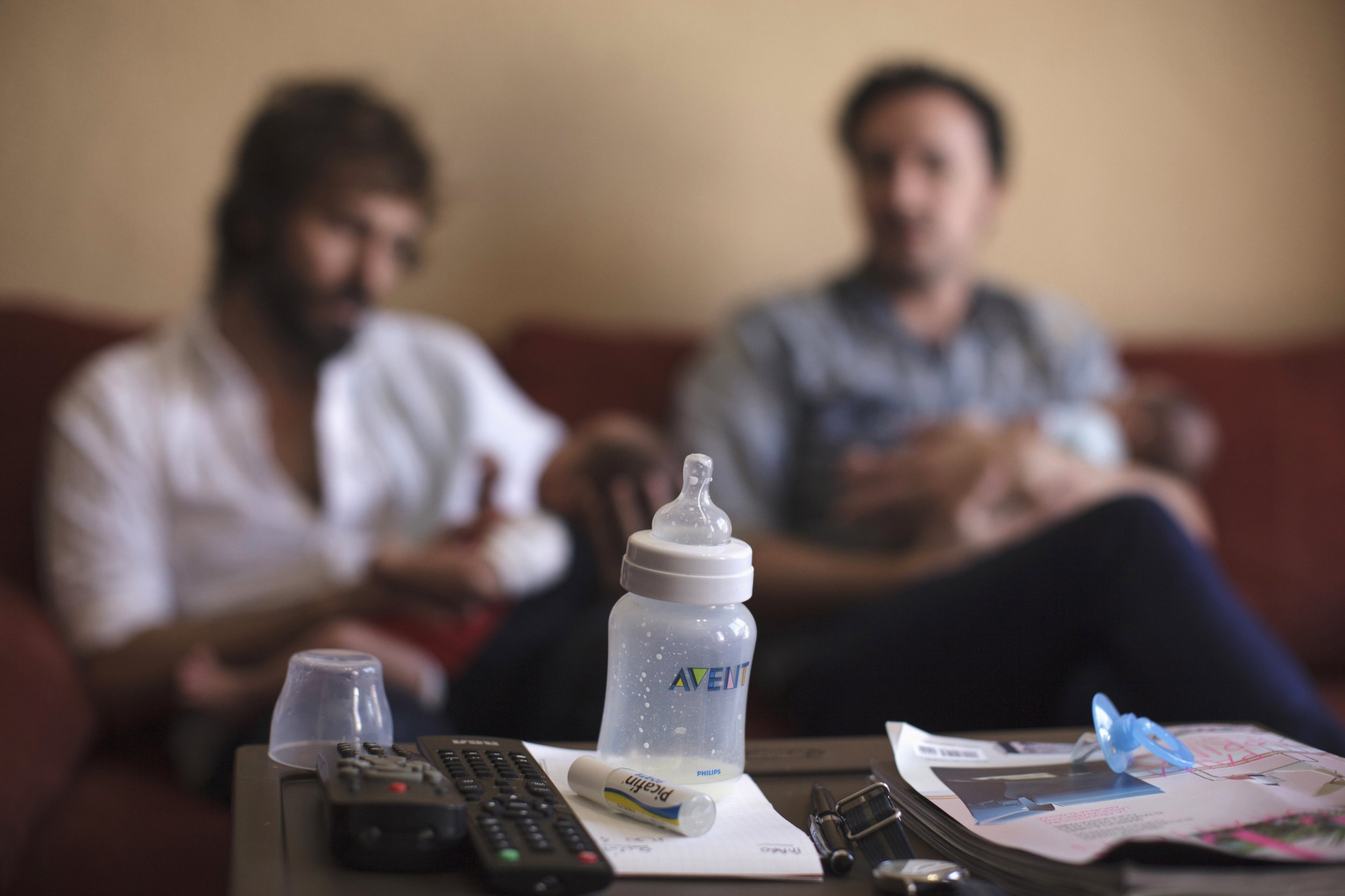
Women are told frequently by experts to maintain healthy lifestyle habits to increase the odds of conception and safeguard the health of a future child. But a new study suggests that men hoping to become fathers should also consider cleaning up their diet and increasing physical activity to improve health outcomes of a baby, even before conception. The study, published Thursday in Cell Metabolism, compared biomarkers in the sperm of obese men versus men who were not overweight. The findings offer a clue into why children of obese dads are also more likely to be obese themselves—and suggests that nongenetic factors like diet can be passed down through sperm.
The research involved 10 obese men and 13 lean men. The researchers found that the sperm cells in lean and obese men had different biomarkers in gene regions associated with appetite control. The differences, they write, are due to epigenetics—changes in gene expression that are not related to underlying DNA and are instead brought about through environmental factors including diet and exercise.
In a separate, but related study, the researchers followed men who underwent bariatric surgery. They identified some 5,000 DNA changes to the men's sperm immediately after surgery was completed and even more a year later.
These findings indicate "the epigenetic landscape of human sperm is dynamic and vulnerable to environmental changes," the researchers write in the study.
They acknowledge that other factors, such as the socioeconomic status of the father, could also be involved in the outcome of a child's weight. But, there are also studies that have been done on rodents that suggest the nutritional status of males directly affect the health of the offspring.
The researchers say studying sperm differences as they relate to lifestyle factors such as smoking and exercise could provide further insight into how epigenetics figures into the health of a child.
The researchers are now looking to collaborate with a fertility clinic to study differences in discarded embryos that were fertilized by men of differing body weights. They also plan to examine the blood from umbilical cords of infants fathered by men in the embryo study.
Uncommon Knowledge
Newsweek is committed to challenging conventional wisdom and finding connections in the search for common ground.
Newsweek is committed to challenging conventional wisdom and finding connections in the search for common ground.
About the writer
Jessica Firger is a staff writer at Newsweek, where she covers all things health. She previously worked as a health editor ... Read more
To read how Newsweek uses AI as a newsroom tool, Click here.








